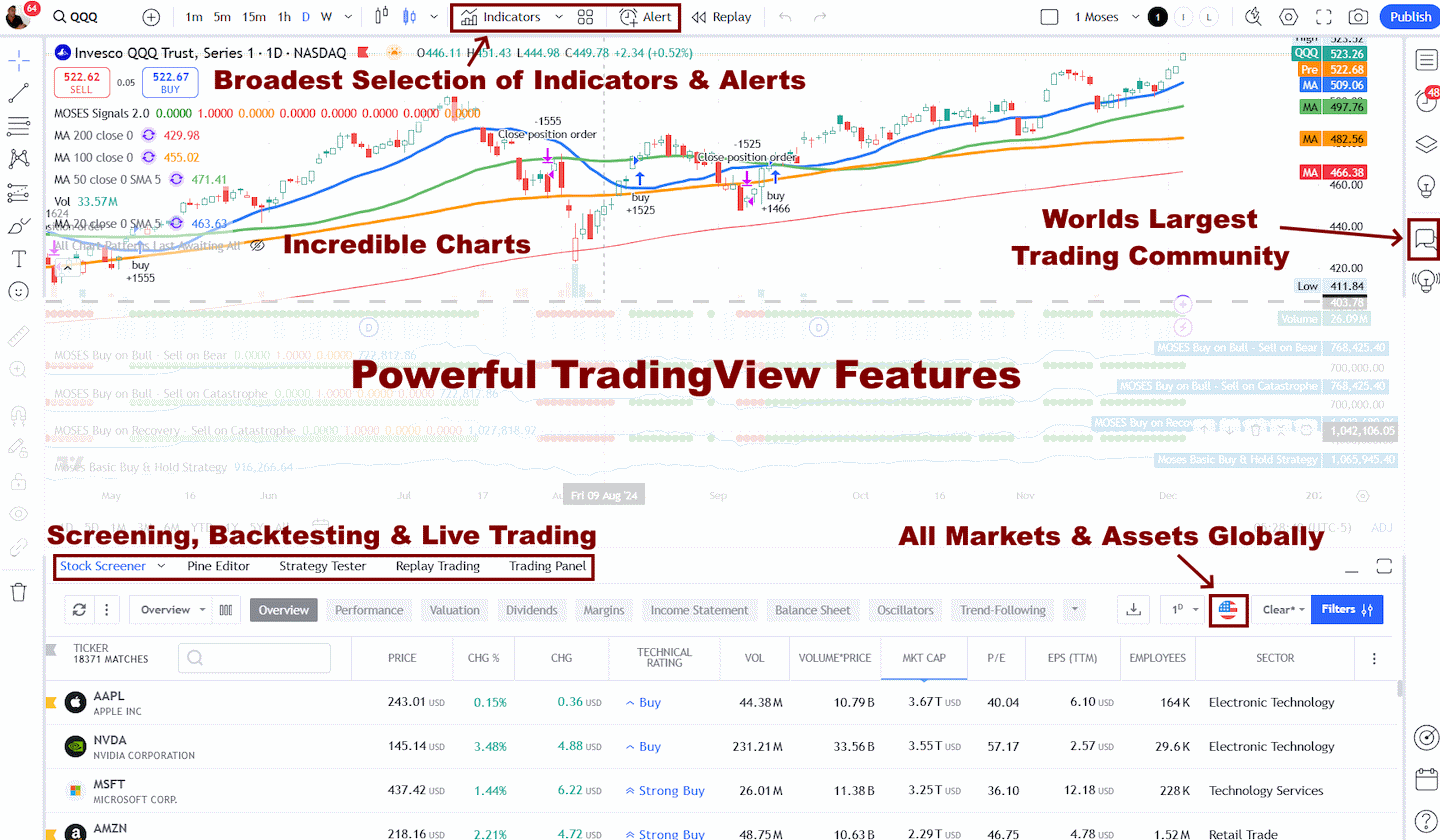What are the different types of stock trading? How do you learn how to trade stocks? How does stock trading work, and is it gambling? These are all valid questions that we will answer in this lesson.
Stock trading can be a great way to make money, but it’s important to understand what you’re doing before you start. We’ll go over the basics of stock trading so that you can make an informed decision about whether or not it’s right for you.

What is stock trading?
Stock trading involves buying and selling shares of stock, which are units of ownership in a company. When you buy stock, you become a shareholder in that company, and when you sell a stock, you relinquish your ownership stake.
Speculative vs. Investment Stock Trading
There are many types of stock trading, but the most common is buying shares of a company’s stock, intending to sell them later at a higher price. This is known as “speculative” stock trading, which can be risky.
Another type of stock trading is called “investment” stock trading. In this case, you buy company shares to hold onto them for a long time (usually years) to benefit from the company’s growth. This is a more stable form of stock trading but carries some risk.
My thorough testing awarded TradingView a stellar 4.8 stars!
With powerful stock chart analysis, pattern recognition, screening, backtesting, and a 20+ million user community, it’s a game-changer for traders.

Whether you're trading in the US or internationally, TradingView is my top pick for its unmatched features and ease of use.
Explore TradingView – Your Gateway to Smarter Trading!
How does stock trading work?
To understand how stock trading works, you must understand the different stock trading methods. There are three strategies in investment stock trading: Value Investing, Dividend Investing, and Growth Investing.
In speculative stock trading, there are eight styles of trading that we cover now.
The 8 Types of Stock Trading
1. Price Action Trading
One of the most popular stock trading strategies is price action trading. This strategy focuses on a security’s price movement and how that movement is interpreted. Traders use this strategy to read the market’s mood and find buying and selling opportunities based on that interpretation. Price action traders often use technical analysis tools to help them make their trading decisions.
2. Momentum Trading
Momentum trading is based on the idea that stocks that are moving higher (up in price) will continue to do so as long as the positive momentum continues. This strategy focuses on buying stocks exhibiting strong upward momentum and selling those moving lower. Momentum traders often use technical analysis tools to help them determine when a stock has enough momentum to be bought or sold.
3. Swing trading
Swing trading is a strategy to take advantage of short-term stock price swings. This strategy typically involves buying stocks, trading near support levels, and selling them when they reach resistance levels. Swing traders often use technical analysis tools to help them find good entry and exit points for their trades.
4. Trend Trading
Trend trading is a strategy that aims to capitalize on medium-term price trends in stocks. This strategy usually involves buying stocks moving higher in price and holding onto them until the trend reverses. Trend traders often use technical analysis tools to help them identify strong trends in the market.
5. Day Trading
Day trading is a strategy that involves buying and selling stocks within the same day. This strategy requires traders to monitor the market for opportunities actively. Day traders often use technical analysis tools to help them find good trade setups. Day trading is a highly risky endeavor, but there are artificial intelligence platforms for trading that help traders get an edge.
6. Scalping
Scalping is a strategy that involves making many small profits by taking advantage of small price movements in stocks. This strategy typically involves buying a stock and then selling it immediately at a higher price. Scalpers often use technical analysis tools to find good entry and exit points for their trades.
This type of trading usually involves buying and selling a security a few seconds or minutes later. Most scalping today is automated and performed by machines; human traders no longer have any chance to profit from this trading style.
7. Position Trading
Position trading is a type of stock trading that involves holding a position in a security for an extended period. This type of trading usually involves buying or selling a security and holding it until the price moves in the desired direction.
8. What is Arbitration Trading?
Arbitration trading is a type of stock trading that involves buying and selling a security to a third party. Typically, an arbitrage trade might be buying an oil contract on an exchange in one country and selling it on an exchange in another country. Arbitrage is essentially making a profit on differing asset prices between markets.
Is stock trading gambling?
Some consider stock trading gambling, but it doesn’t have to be. Stock trading can be a great way to make money if you’re careful, knowledgeable, and manage your risks. However, it can be risky if you’re careless or don’t understand what you’re doing. As with anything else, educating yourself before you start is important.
How to learn stock trading
Now that you know a bit about stock trading, let’s answer how you can learn to trade stocks. There are many ways to learn, but one of the best is to take an online course. These courses will teach you the basics of stock trading and allow you to practice your skills before using real money.
Here is our complete list of resources to help you learn stock trading.
https://www.liberatedstocktrader.com/learn-stock-trading/
So there you have it: a brief overview of stock trading. We hope this has answered some of your questions and that you now understand how trading works. We recommend taking our Liberated Stock Trader Pro training if you’re interested in learning more. With a little effort, you can be trading stocks like a pro in no time. Good luck!
Course 103 – Technical Analysis covers the techniques used by traders.
Course 103 – Stock Market Charting & Technical Analysis Course
